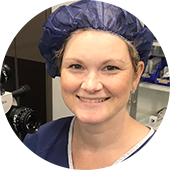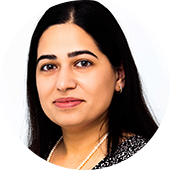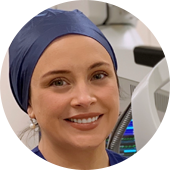Diagnostic Imaging
Valley Eye Specialists is equipped with a full range of diagnostic imaging equipment to provide a comprehensive ophthalmic assessment for all our adult and paediatric patients. Use of these diagnostic tests provides the doctor with gold standard and vital information that assists in determining an appropriate individual management plan.
What is the difference between an Ophthalmologist and an Optometrist?
An ophthalmologist is a Specialist Medical Doctor who has completed a medical degree (6-7 years), followed by an internship, residency, and senior residency (3+ years) and who has then completed specialist training in the field of ophthalmology (5 years). Additionally, an ophthalmologist may have undertaken further subspecialist fellowship training in areas such as paediatrics, strabismus, pterygium, retinal conditions, etc.
Ophthalmologists are comprehensively trained in the medical treatment of eye conditions as well as in safely performing laser and surgical interventions.
An optometrist is a healthcare professional (not a medical doctor) who has completed 4-5 years of university studies in the field of optometry. Optometrists perform routine eye examinations, prescribe spectacles and contact lenses, and can also prescribe eye drops for certain indications. An optometrist will refer patients to an ophthalmologist for serious eye conditions which require medical and/or surgical treatment.
How long does an appointment with an ophthalmologist take?
Due to the comprehensive nature of an eye examination, we ask all patients to allow two hours for their consultation. This time may vary given the nature of your condition and the reason for your visit.
During the course of your consultation, you will undergo a number of clinical assessments with an assistant health care professional (either an ophthalmic technician, orthoptist or optometrist) as well as your ophthalmologist. These assessments will likely include the use of dilating eye drops, which require approximately 15-30 minutes to take effect. Additionally, you may also undergo additional diagnostic tests or scans as part of your appointment.
Do I need a referral?
Yes. A referral provides your ophthalmologist with important information regarding your general health, medications, and allergies, as well as the underlying reason for your consultation. In turn, it allows your ophthalmologist to communicate with your usual doctor or optometrist regarding the outcome of your consultation and any treatments recommended.
A referral also allows you to claim a Medicare rebate. You can obtain a referral from your GP or Optometrist (valid for 12 months) or another Specialist Medical Practitioner (valid for 3 months).
Why do my pupils need to be dilated?
Dilating your pupils provides your ophthalmologist with the ability to perform a comprehensive examination of your eye, including important structures such as your optic nerve, macula and retina. Depending on your condition, you may require a dilated examination at each visit.
It is difficult for our staff to determine if dilating drops are required and is safest to plan your visit assuming that this will happen. The effects of dilating drops mean that your vision will be blurry and you will be more sensitive to light than usual. You should not drive while your pupils are dilated. Adult dilating drops tend to wear off within 2-4 hours, however for children the drops used may mean the pupils remain enlarged for up to 18 hours.
What is Diagnostic Imaging?
Diagnostic Imaging refers to non-invasive methods of testing, scanning or measuring specific parts of the eye to help determine a diagnosis and course of treatment. Some of these tests can also help monitor various conditions or responses to treatments. For more information regarding the diagnostic testing and imaging equipment that is used at Valley Eye Specialists, please see Diagnostic Imaging.
How much will my appointment cost?
The cost of your appointment will comprise a consultation fee as well as fees for any diagnostic tests performed on the day of the appointment. We do endeavour to provide as much information as possible regarding these costs – a summary of all fees, together with the applicable Medicare rebate, is sent to all patients upon confirmation of an appointment. Appointments are not bulk billed.
Is any of my treatment covered by Private Health Insurance or Medicare?
Medicare
Medicare cardholders will be able to claim a portion of the fee for their consultation and some diagnostic tests, providing that they have a current referral. Please note, there are a number of diagnostic tests that are unfortunately not yet covered by Medicare and there is no rebate applicable for these tests. All claims are submitted electronically to Medicare by the Reception team once full payment has been completed.
Private Health Insurance
Ophthalmic consultations are not covered by private heath insurance providers, although Private Health Insurance will generally cover some or all of any costs associated with surgery. We collect information regarding your Private Health Insurance so that we can provide advice regarding the costs of surgery should this form part of your recommended treatment.
Where will my surgery be performed?
Our ophthalmologists are accredited at one or more of the following local Private Hospitals:
- Queensland Eye Hospital
- North West Private Hospital
Is there parking available?
Valley Eye Specialists provides free onsite parking for patients and their families, subject to availability during busy times. Alternatively, there is undercover parking available across the road at McWhirters Car Park. You are able to obtain discounted parking by pre-booking a car park via: https://secureaspot.secureparking.com.au/
Valley Eye Specialists is also easily accessible via public transport, with bus stops located on Ballow Street (as well as nearby on Wickham and Ann streets), and Fortitude Valley train station a short walk away.






